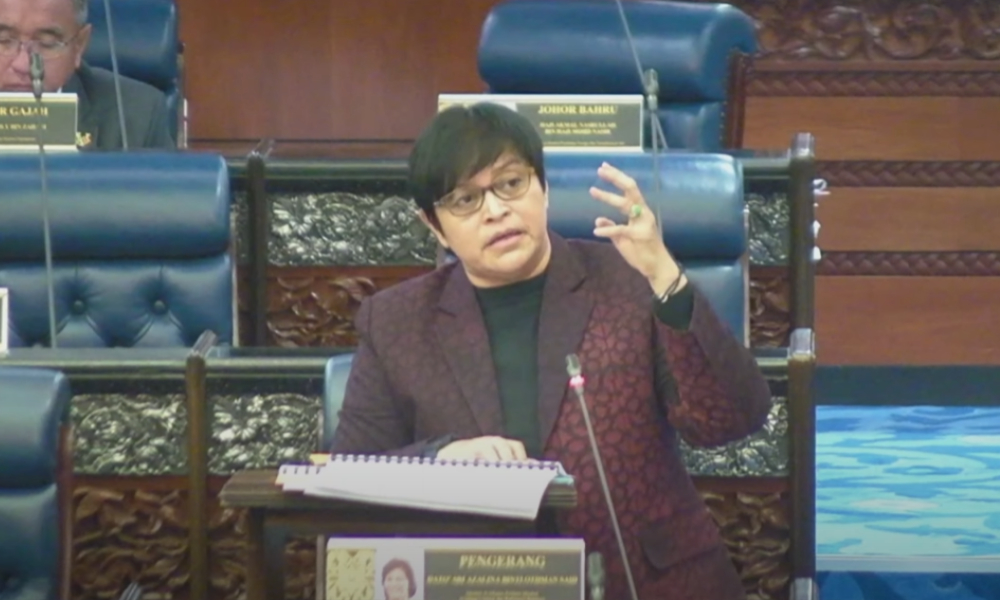I watched social media timelines ignite the moment Minister in the Prime Minister’s Department (Law and Institutional Reform) Azalina Othman Said suggested raising Malaysia’s compulsory retirement age to 65.
Within hours, her name was trending, driven by thousands of comments that ran roughly 95 percent negative.
The themes felt familiar: graduates lamenting blocked career paths, employees joking that they would “work until the hearse arrives”, and sceptics asking whether the government simply hoped to postpone pension payouts.
Azalina explained that many 60-year-olds are still vigorous and eager to contribute, but this narrative was drowned out by viral cries and memes before policy analysts could weigh in.
Yet she touched a legitimate concern. Life expectancy has climbed, savings often fall short, and expertise does not evaporate when the calendar flips at 60.
Her idea was never a decree forcing every worker to stay; it was an argument to consider a higher ceiling with safety valves.

The backlash, however, showed how quickly a technical proposal can look like an assault on two powerful sentiments: youth opportunity and the right to rest after decades of service.
Into that storm stepped Prime Minister Anwar Ibrahim. Speaking after launching the 2025 National Language Awards, he said the proposal “deserves attention and careful study”.
It will now pass through the standard procedures. The Public Service Department will model labour demand, pension liabilities and demographic shifts before a cabinet paper is drafted.
Anwar will frame the question soberly, measure potential benefits and costs, and then decide.
That is where the conversation belongs. Inside ministries that can crunch numbers, not in click-driven arenas that reward instant outrage.
Malaysia is ageing faster than our policies
Malaysia’s demographic curve is bending faster than our statutes. A child born this year is predicted to live past 75, up from about 65 in 1990.
Fertility, meanwhile, continues to dip below replacement.

By 2035, roughly one Malaysian in three will be older than 50. Keeping the retirement gate locked at 60 removes five productive years from the tax base and from Employees Provident Fund (EPF) contributions, while pension cheques flow for longer.
The EPF warns that only one-third of active members reach its basic savings target of RM240,000 by age 55.
That nest egg funds perhaps a dozen modest years. With post-retirement life now spanning two decades or more, many households face a gap that the state cannot close without new revenue or later payouts.
Inaction leaves future taxpayers to plug an ever-widening hole or forces painful benefit cuts as that gap extends well beyond individual bank accounts.
As the senior share of the population grows, government spending on healthcare subsidies, income transfers, and age-linked privileges will rise in tandem.
In effect, the nation pays twice: first through foregone income taxes when experienced workers bow out early, and again through the mounting costs of supporting a healthy but economically inactive cohort.

It is a double-edged sword of prosperity. Longer lives are a triumph of public health, yet they also strain public finances unless labour force participation keeps pace.
A global drift beyond 60
Malaysia is not alone in reassessing retirement thresholds.
France endured strikes, yet still moved the bar from 62 to 64. Spain is headed to 67 by 2027. Germany, Italy, and the Netherlands already set statutory ages at 67.
Across the causeway, Singapore is inching upward toward 65 by 2030 with legal guarantees of re-employment to 70.
The OECD now projects an average normal retirement age of about 66 for today’s workers.
Countries converge on the same conclusion: longer lives, slimmer birth cohorts, and stretched pension budgets require gradual extensions

Leaving our limit unchanged risks two outcomes: ballooning fiscal obligations or reduced benefits.
Either path punishes the very cohorts most anxious about change.
From viral idea to implementable policy
Azalina’s prompt deserves more than ridicule; it deserves architecture.
I would support a 65 ceiling only if four guardrails are built into legislation.
1. Genuine optionality
Eligibility to leave must stay at 55, with voluntary exits at 58 and 60 untouched. 65 becomes a roof, not a compulsory finish line.
Workers retain the freedom to pursue family time, religious devotion, or simply rest.
2. Fitness screening and role realignment
Beginning at 60, public servants should undergo medical and performance checks every year.
Physically demanding roles such as fire and rescue, field policing, and physical education teaching would need stricter fitness bars.
Those who fall short can transfer into training, inspection or desk-based posts where experience outweighs muscle.

This protects service quality and worker health.
3. Fast-track entry and job sharing for youth
To prevent a clogged promotion ladder, each ministry should reserve graduate positions paired with senior mentors.
Where feasible, a single full-time slot can be divided between a phased-retiring officer and a new hire on a 60-40 schedule.
Both earn proportional pay and benefits, and the organisation gains continuity with fresh perspectives.
4. Fair financial incentives
Officers who remain beyond 60 should receive an extra two percentage points of employer contribution to their EPF or an actuarially sound boost to defined benefit pensions.
The Treasury gains from deferred payouts; employees confront higher health expenses with age. Balanced incentives share the dividend.
Testing the objections
“Older workers block promotion pipes.”
Promotions should rest on competence, not tenure alone. A protected fast-track quota plus job sharing keeps pathways open.
Organisations already relying on seasoned mentors recognise that leadership is not a zero-sum game when roles are structured smartly.
“Productivity collapses after 55.”
Some jobs increasingly tax the body. Many others rely on insight, networks, and risk judgment that strengthen with decades.
Universities, consulting firms, and hospitals retain staff into their late 60s because it makes performance sense.

Blanket generalisations waste capacity. Targeted screenings separate those in decline from those still thriving.
“This is a stealth move to save pensions.”
Delaying payouts does relieve pressure, but taxpayers also gain from additional income tax and provident fund flows generated by seniors who keep working.
If that revenue funds upskilling programmes and growth sectors that employ youth, such as renewable energy, artificial intelligence, and advanced manufacturing, the dividend would compound.
Fiscal prudence and social cohesion
Malaysia’s retirement architecture combines pay-as-you-go pensions for civil servants with individual EPF savings for most private employees. Both strands strain under longevity.
A later retirement age yields two dividends, which are more contributions and fewer payout years.
To capture them responsibly, the state must prevent medical costs from devouring savings and prevent organisational inertia from stifling innovation.
The alternative is inter-generational tension, whereby younger workers are forced to subsidise expanding pensions while struggling with housing costs and wage stagnation.

International examples show that early, transparent recalibration curbs political blowback.
France illustrates the cost of postponement; Singapore’s phased model demonstrates how clear timelines soften resistance.
Malaysia can still script a gentler landing.
Why the cabinet review matters
Anwar’s insistence on rigorous modelling before cabinet debate is more than routine, it insists that policy outlasts a news cycle.
Hashtag storms rise in minutes; pension obligations endure decades. A white paper that lays out demographic scenarios and fiscal trade-offs will not silence every critic, but it will ground the argument in numbers rather than conjecture.
Toward a durable compromise
Extending working life is not a cure-all.
It will not fix graduate underemployment if universities keep churning out mismatched skills. It will not replenish EPF accounts if contribution gaps persist in the informal sector. It will not solve economic insecurity if affordable housing and quality healthcare lag.
What it can do is buy fiscal breathing space and empower experienced Malaysians who wish to remain engaged.
Forty years ago, retiring at 55 years old matched a country where life expectancy hovered at 65 to 68 years old and manual labour dominated.

Modern Malaysia is urban, service-oriented and increasingly digital. Work patterns have changed; exit patterns should follow.
A ceiling set at 65, buttressed by health checks, youth fast-tracks, and fair incentives, offers a bridge between prudence and progress.
A call for sober discussion
Azalina’s remark sparked a backlash that risked eclipsing its intent. Anwar’s move to shift the debate from timelines to actuarial tables restores proportion.
Viral outrage may generate clicks, but solutions arise from data, empathy, and the willingness to adjust old rules to new realities.
When the mathematics of longevity, savings, and public finance converge, leadership means explaining the hard facts calmly and crafting a plan citizens can trust.
The coming months will show whether Malaysia can rise above hashtags and legislate for the future that its ageing society demands.
A note to the soundbite specialists
One final word for those who rushed to harvest likes, shares, and comments by swatting a proposal they never paused to read.
You cannot secure the next generation’s goodwill with memes alone, nor can you shield today’s retirees by pretending demographic math is optional.
Live a little better than the hashtag cycle by opening a spreadsheet, studying how other nations keep older citizens productive, then joining the grown-ups at the policy table.
Malaysia’s future will be written by those willing to count, not those content to clap. - Mkini
RAZIZ RASHID is a strategic communications consultant and former corporate communications head at the Prime Minister’s Department.
The views expressed here are those of the author/contributor and do not necessarily represent the views of MMKtT.




No comments:
Post a Comment
Note: Only a member of this blog may post a comment.